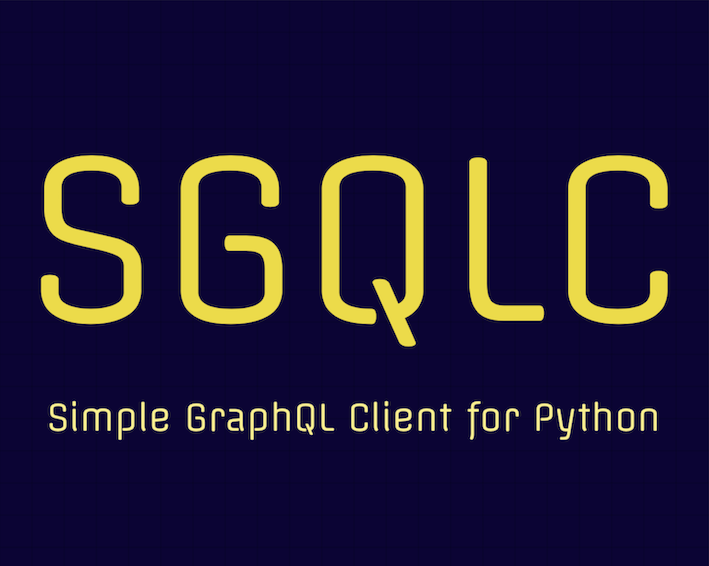'''
GraphQL Types for :mod:`datetime`
=================================
Maps:
- :class:`datetime.time` to GraphQL :class:`Time`
- :class:`datetime.date` to GraphQL :class:`Date`
- :class:`datetime.datetime` to GraphQL :class:`DateTime`
You may either explicitly use this module classes or :mod:`datetime`,
as they will be automatically recognized by the framework.
Conversions assume ISO 8601 encoding.
Examples
--------
>>> from sgqlc.types import Type
>>> class MyDateTimeType(Type):
... time1 = datetime.time
... time2 = Time
... date1 = datetime.date
... date2 = Date
... datetime1 = datetime.datetime
... datetime2 = DateTime
...
>>> MyDateTimeType # or repr() to print out GraphQL
type MyDateTimeType {
time1: Time
time2: Time
date1: Date
date2: Date
datetime1: DateTime
datetime2: DateTime
}
>>> json_data = {
... 'time1': '12:34:56',
... 'time2': '12:34:56-03:00', # set timezone GMT-3h
... 'date1': '2018-01-02',
... 'date2': '20180102', # compact form is accepted
... 'datetime1': '2018-01-02T12:34:56Z', # Z = GMT/UTC
... 'datetime2': '20180102T123456-0300', # compact form is accepted
... }
>>> obj = MyDateTimeType(json_data)
>>> for field_name in obj: # doctest: +ELLIPSIS
... print(field_name, repr(obj[field_name]))
time1 datetime.time(12, 34, 56)
time2 datetime.time(12, 34, 56, tzinfo=...(...-1, ...75600)))
date1 datetime.date(2018, 1, 2)
date2 datetime.date(2018, 1, 2)
datetime1 datetime.datetime(2018, 1, 2, 12, 34, 56, tzinfo=....utc)
datetime2 datetime.datetime(2018, 1, 2, 12, 34, 56, tzinfo=...75600)))
Pre-converted types are allowed:
>>> json_data = { 'time1': datetime.time(12, 34, 56) }
>>> obj = MyDateTimeType(json_data)
>>> obj.time1
datetime.time(12, 34, 56)
However, invalid encoded strings are not:
>>> json_data = { 'time1': '12-3' }
>>> obj = MyDateTimeType(json_data) # doctest: +IGNORE_EXCEPTION_DETAIL
Traceback (most recent call last):
...
ValueError: MyDateTimeType selection 'time1': ...
>>> json_data = { 'date1': '12-3' }
>>> obj = MyDateTimeType(json_data) # doctest: +IGNORE_EXCEPTION_DETAIL
Traceback (most recent call last):
...
ValueError: MyDateTimeType selection 'date1': ...
>>> json_data = { 'datetime1': '2018-01-02X12-34-56Z' }
>>> obj = MyDateTimeType(json_data) # doctest: +IGNORE_EXCEPTION_DETAIL
Traceback (most recent call last):
...
ValueError: MyDateTimeType selection 'datetime1': ...
:license: ISC
'''
__docformat__ = 'reStructuredText en'
__all__ = ('Time', 'Date', 'DateTime')
import datetime
import re
from . import Scalar, map_python_to_graphql
[docs]class Time(Scalar):
'''Time encoded as string using ISO8601 (HH:MM:SS[.mmm][+/-HH:MM])
While not a standard GraphQL type, it's often used, so expose to
make life simpler.
>>> Time('12:34:56') # naive, no timezone
datetime.time(12, 34, 56)
>>> Time('12:34:56Z') # Z = GMT/UTC
datetime.time(12, 34, 56, tzinfo=datetime.timezone.utc)
>>> Time('12:34:56-05:30') # doctest: +ELLIPSIS
datetime.time(12, 34, 56, tzinfo=...(...-1, ...70200)))
>>> Time('12:34:56+05:30') # doctest: +ELLIPSIS
datetime.time(12, 34, 56, tzinfo=...(...19800)))
>>> Time('123456') # compact form
datetime.time(12, 34, 56)
>>> Time('123456Z') # compact form, GMT/UTC
datetime.time(12, 34, 56, tzinfo=datetime.timezone.utc)
>>> Time('123456-0530') # doctest: +ELLIPSIS
datetime.time(12, 34, 56, tzinfo=...(...-1, ...70200)))
>>> Time('123456+0530') # doctest: +ELLIPSIS
datetime.time(12, 34, 56, tzinfo=...(...19800)))
Pre-converted values are allowed:
>>> Time(datetime.time(12, 34, 56))
datetime.time(12, 34, 56)
It can also serialize to JSON:
>>> Time.__to_json_value__(datetime.time(12, 34, 56))
'12:34:56'
>>> tzinfo = datetime.timezone.utc
>>> Time.__to_json_value__(datetime.time(12, 34, 56, 0, tzinfo))
'12:34:56+00:00'
>>> Time.__to_json_value__('12:34:56')
'12:34:56'
>>> Time.__to_json_value__(None)
'''
_re_parse = re.compile(
r'^(?P<H>\d{2}):?(?P<M>\d{2}):?(?P<S>\d{2})(?P<MS>|[.]\d+)'
r'(?P<TZ>|Z|(?P<TZH>[+-]\d{2}):?(?P<TZM>\d{2}))$'
)
@classmethod
def converter(cls, s):
if isinstance(s, datetime.time):
return s
m = cls._re_parse.match(s)
if not m:
raise ValueError('not in ISO 8601 format HH:MM:SS: %s' % s)
hour = int(m.group('H'))
minute = int(m.group('M'))
second = int(m.group('S'))
microsecond = int(m.group('MS')[1:] or 0)
tzinfo = None
if m.group('TZ') == 'Z':
tzinfo = datetime.timezone.utc
elif m.group('TZ'):
d = datetime.timedelta(
hours=int(m.group('TZH')),
minutes=int(m.group('TZM')),
)
tzinfo = datetime.timezone(d)
return datetime.time(hour, minute, second, microsecond, tzinfo)
@classmethod
def __to_json_value__(cls, value):
if value is None:
return None
if isinstance(value, str):
return value
return value.isoformat()
[docs]class Date(Scalar):
'''Date encoded as string using ISO8601 (YYYY-MM-SS)
While not a standard GraphQL type, it's often used, so expose to
make life simpler.
>>> Date('2018-01-02')
datetime.date(2018, 1, 2)
>>> Date('20180102') # compact form
datetime.date(2018, 1, 2)
Pre-converted values are allowed:
>>> Date(datetime.date(2018, 1, 2))
datetime.date(2018, 1, 2)
It can also serialize to JSON:
>>> Date.__to_json_value__(datetime.date(2018, 1, 2))
'2018-01-02'
>>> Date.__to_json_value__('2018-01-02')
'2018-01-02'
>>> Date.__to_json_value__(None)
'''
_re_parse = re.compile(r'^(?P<Y>\d{4})-?(?P<m>\d{2})-?(?P<d>\d{2})$')
@classmethod
def converter(cls, s):
if isinstance(s, datetime.date):
return s
m = cls._re_parse.match(s)
if not m:
raise ValueError('not in ISO 8601 format YYYY-MM-DD: %s' % s)
year = int(m.group('Y'))
month = int(m.group('m'))
day = int(m.group('d'))
return datetime.date(year, month, day)
@classmethod
def __to_json_value__(cls, value):
if value is None:
return None
if isinstance(value, str):
return value
return value.isoformat()
[docs]class DateTime(Scalar):
'''Date and Time encoded as string using ISO8601
(YYYY-mm-ddTHH:MM:SS[.mmm][+/-HH:MM])
While not a standard GraphQL type, it's often used, so expose to
make life simpler.
>>> DateTime('2018-01-02T12:34:56') # naive, no timezone
datetime.datetime(2018, 1, 2, 12, 34, 56)
>>> DateTime('2018-01-02T12:34:56Z') # Z = GMT/UTC
datetime.datetime(2018, 1, 2, 12, 34, 56, tzinfo=datetime.timezone.utc)
>>> DateTime('2018-01-02T12:34:56-05:30') # doctest: +ELLIPSIS
datetime.datetime(2018, 1, 2, 12, 34, 56, tzinfo=..., ...70200)))
>>> DateTime('2018-01-02T12:34:56+05:30') # doctest: +ELLIPSIS
datetime.datetime(2018, 1, 2, 12, 34, 56, tzinfo=...(...19800)))
>>> DateTime('20180102T123456') # compact form
datetime.datetime(2018, 1, 2, 12, 34, 56)
>>> DateTime('20180102T123456Z') # compact form, GMT/UTC
datetime.datetime(2018, 1, 2, 12, 34, 56, tzinfo=datetime.timezone.utc)
>>> DateTime('20180102T123456-0530') # doctest: +ELLIPSIS
datetime.datetime(2018, 1, 2, 12, 34, 56, tzinfo=..., ...70200)))
>>> DateTime('20180102T123456+0530') # doctest: +ELLIPSIS
datetime.datetime(2018, 1, 2, 12, 34, 56, tzinfo=...(...19800)))
Pre-converted values are allowed:
>>> DateTime(datetime.datetime(2018, 1, 2, 12, 34, 56))
datetime.datetime(2018, 1, 2, 12, 34, 56)
It can also serialize to JSON:
>>> dt = datetime.datetime(2018, 1, 2, 12, 34, 56)
>>> DateTime.__to_json_value__(dt)
'2018-01-02T12:34:56'
>>> DateTime.__to_json_value__('2018-01-02T12:34:56')
'2018-01-02T12:34:56'
>>> tzinfo = datetime.timezone.utc
>>> DateTime.__to_json_value__(dt.replace(tzinfo=tzinfo))
'2018-01-02T12:34:56+00:00'
>>> DateTime.__to_json_value__(None)
'''
_re_parse = re.compile(
r'^(?P<Y>\d{4})-?(?P<m>\d{2})-?(?P<d>\d{2})T'
r'(?P<H>\d{2}):?(?P<M>\d{2}):?(?P<S>\d{2})(?P<MS>|[.]\d+)'
r'(?P<TZ>|Z|(?P<TZH>[+-]\d{2}):?(?P<TZM>\d{2}))$'
)
@classmethod
def converter(cls, s):
if isinstance(s, datetime.datetime):
return s
m = cls._re_parse.match(s)
if not m:
raise ValueError(
'not in ISO 8601 format YYYY-MM-DDTHH:MM:SS: %s' % s
)
year = int(m.group('Y'))
month = int(m.group('m'))
day = int(m.group('d'))
hour = int(m.group('H'))
minute = int(m.group('M'))
second = int(m.group('S'))
microsecond = int(m.group('MS')[1:] or 0)
tzinfo = None
if m.group('TZ') == 'Z':
tzinfo = datetime.timezone.utc
elif m.group('TZ'):
d = datetime.timedelta(
hours=int(m.group('TZH')),
minutes=int(m.group('TZM')),
)
tzinfo = datetime.timezone(d)
return datetime.datetime(
year, month, day, hour, minute, second, microsecond, tzinfo
)
@classmethod
def __to_json_value__(cls, value):
if value is None:
return None
if isinstance(value, str):
return value
return value.isoformat()
map_python_to_graphql.update(
{
datetime.time: Time,
datetime.date: Date,
datetime.datetime: DateTime,
}
)

